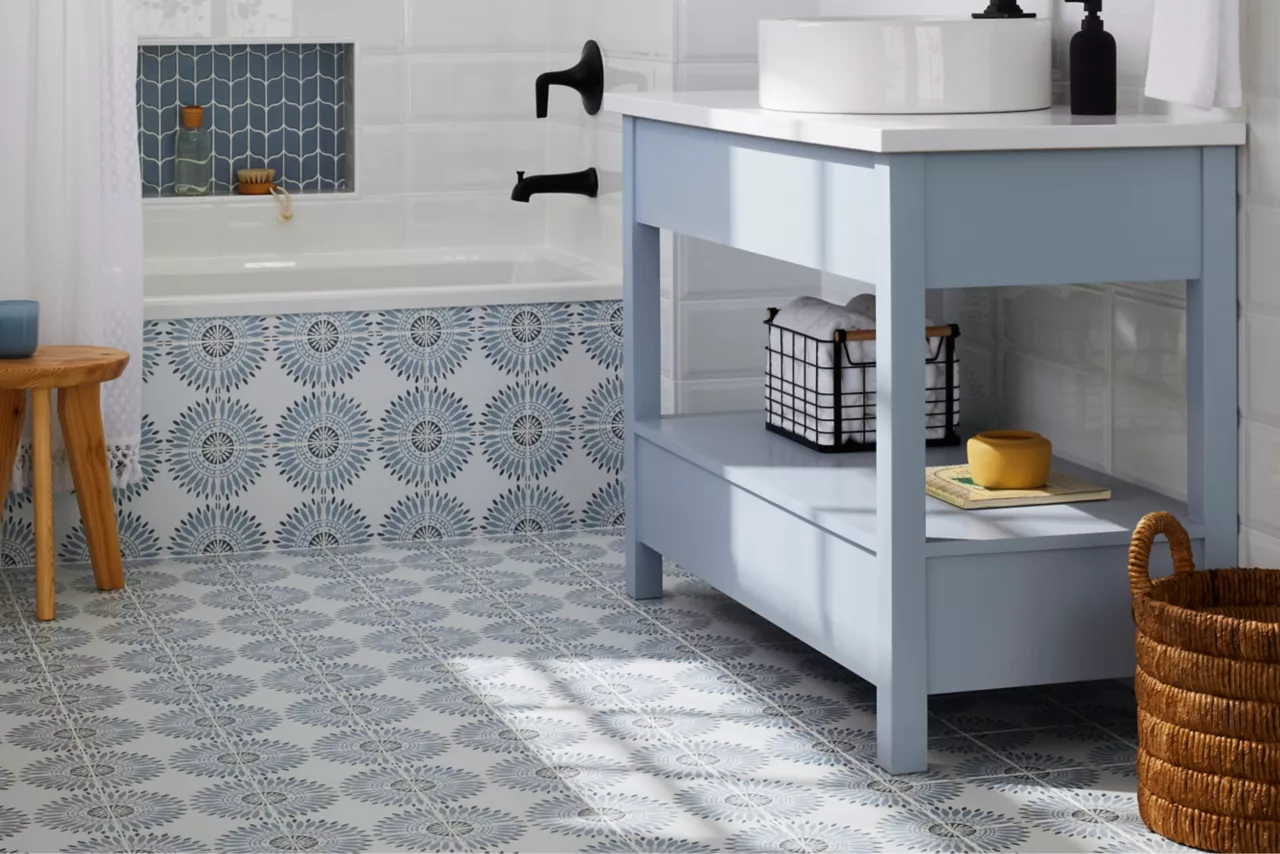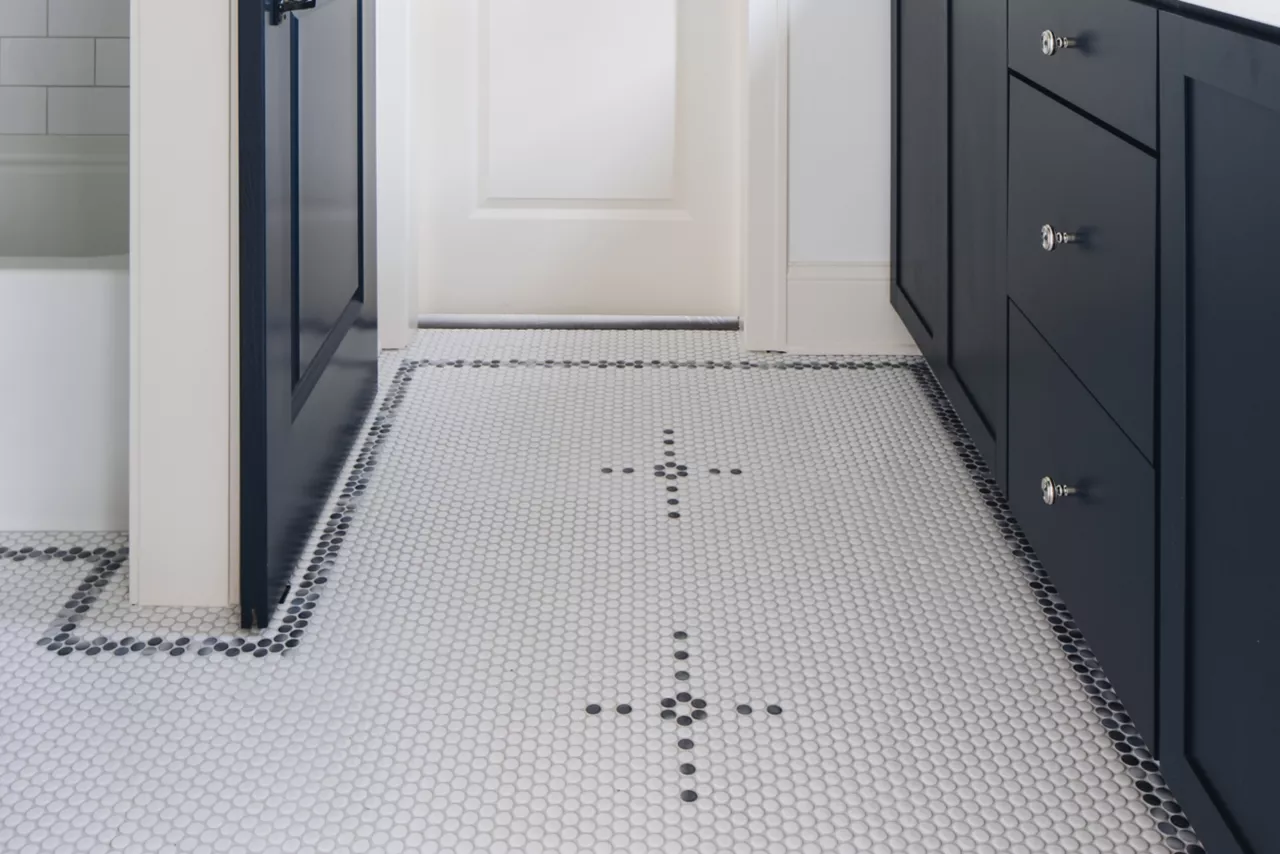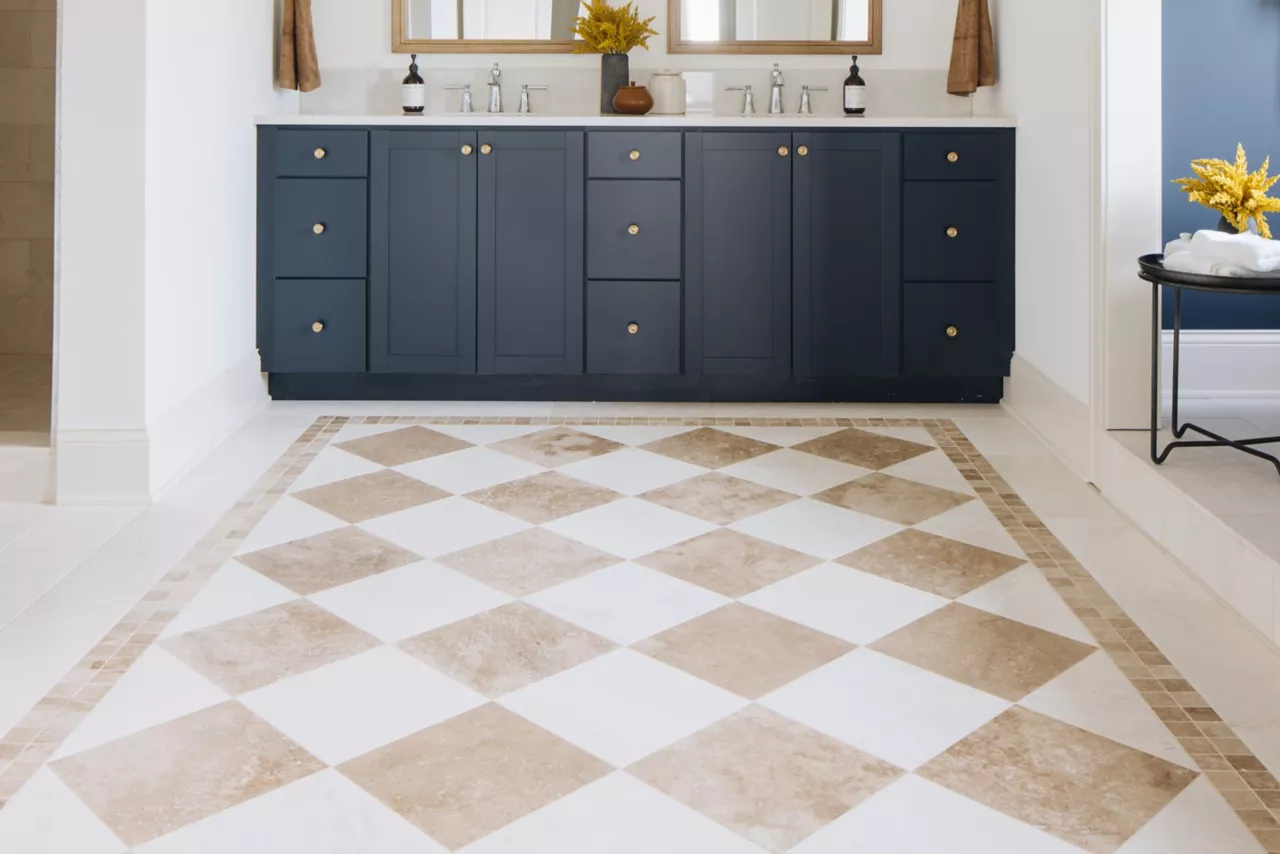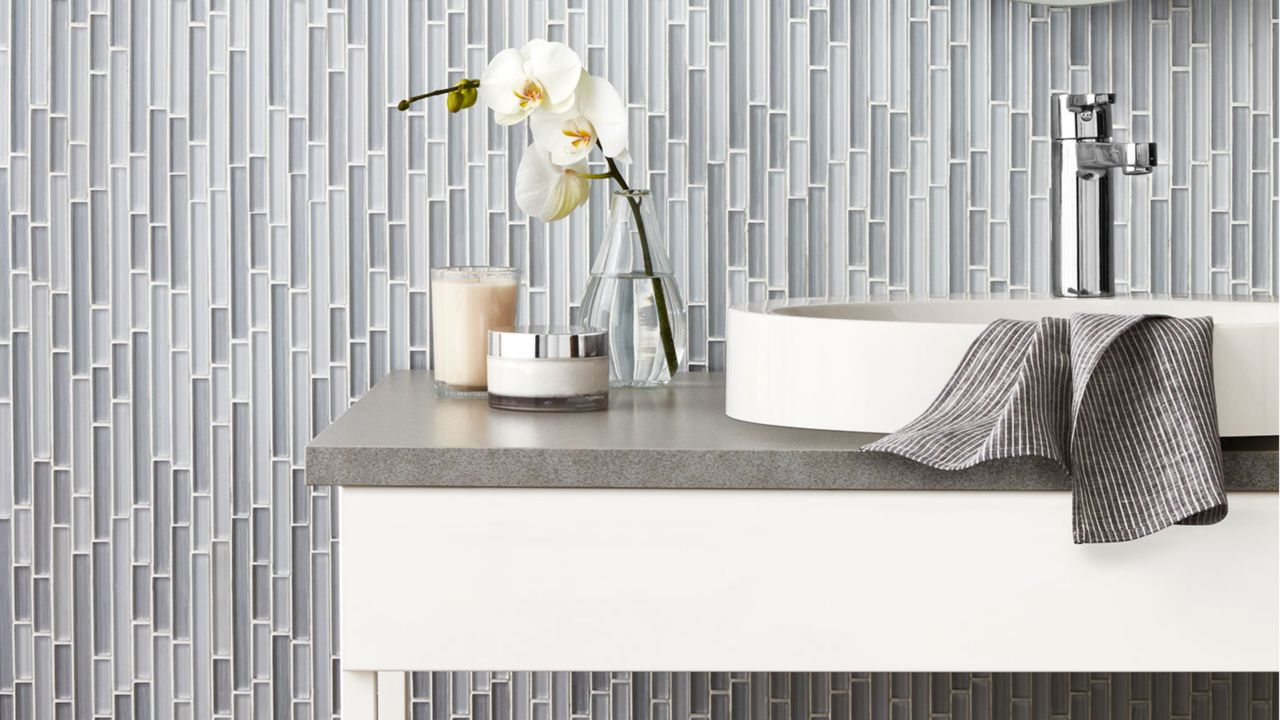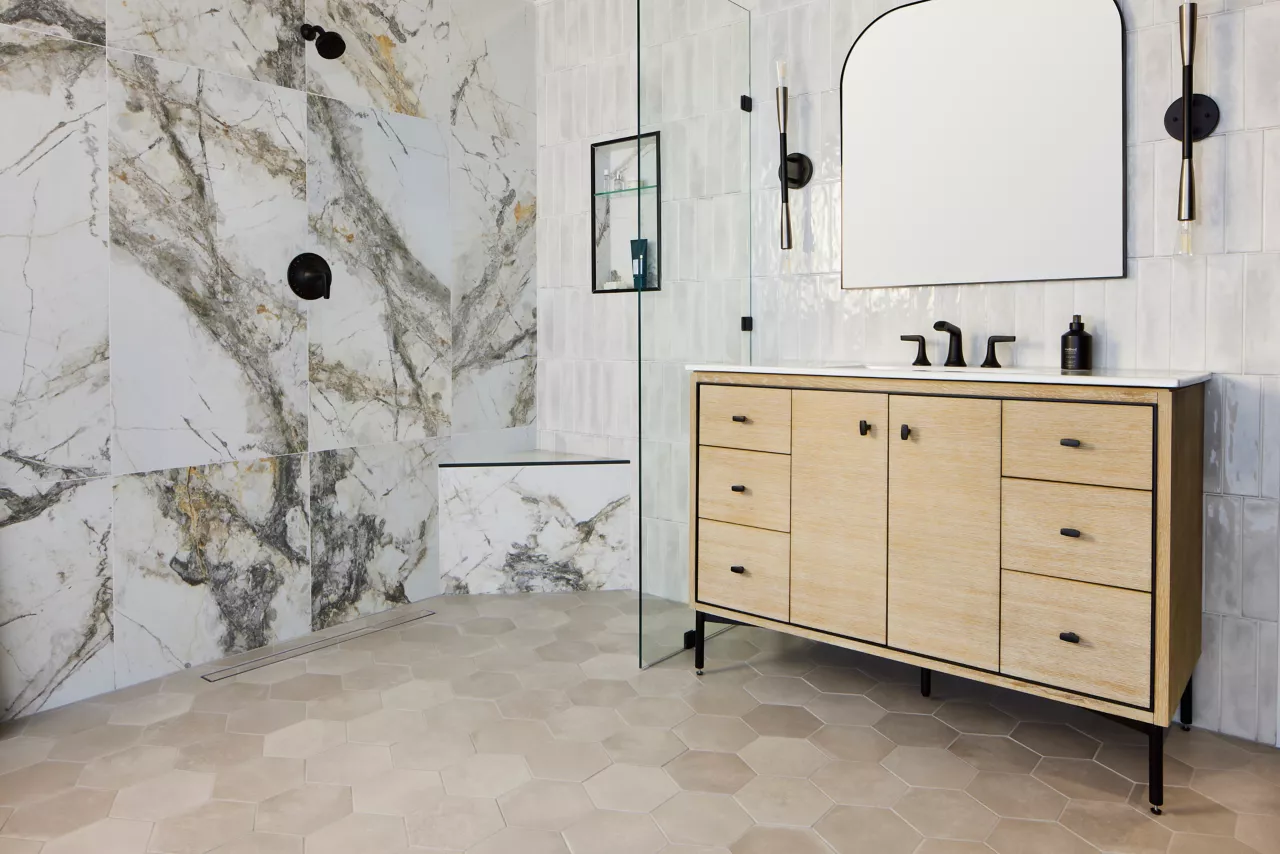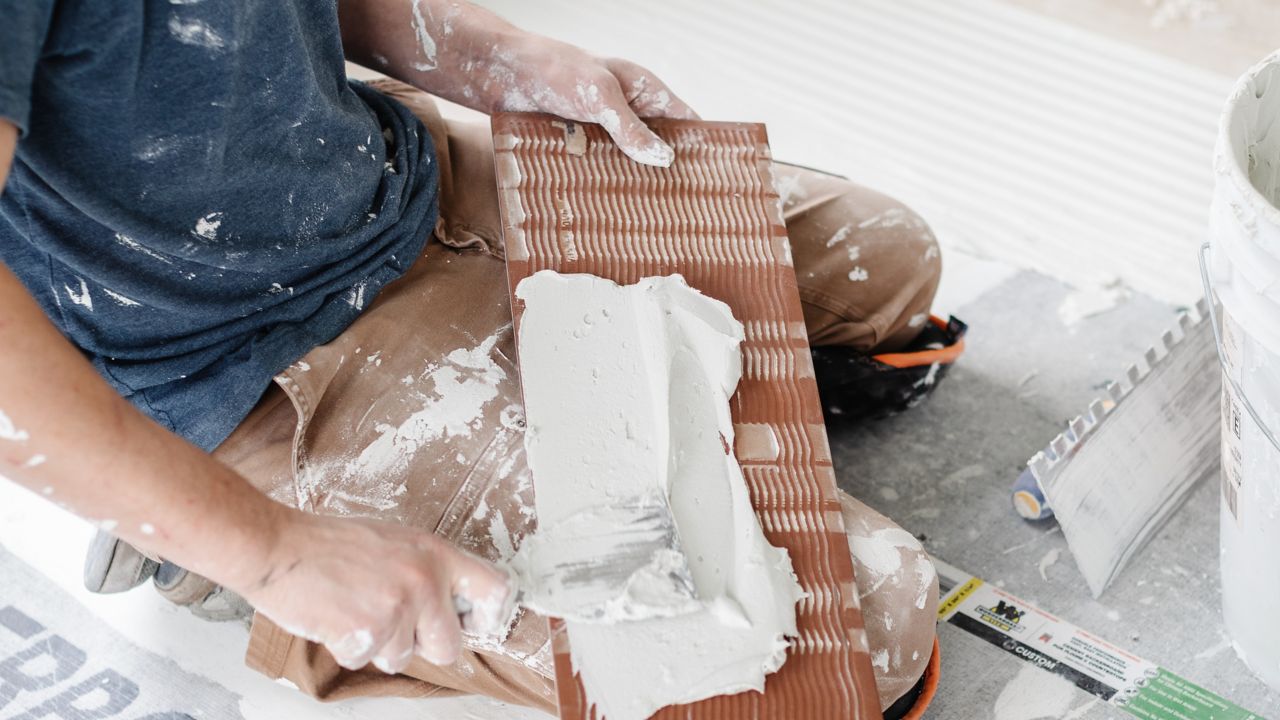Best Tile for Bathroom Floors
Porcelain, Ceramic & More
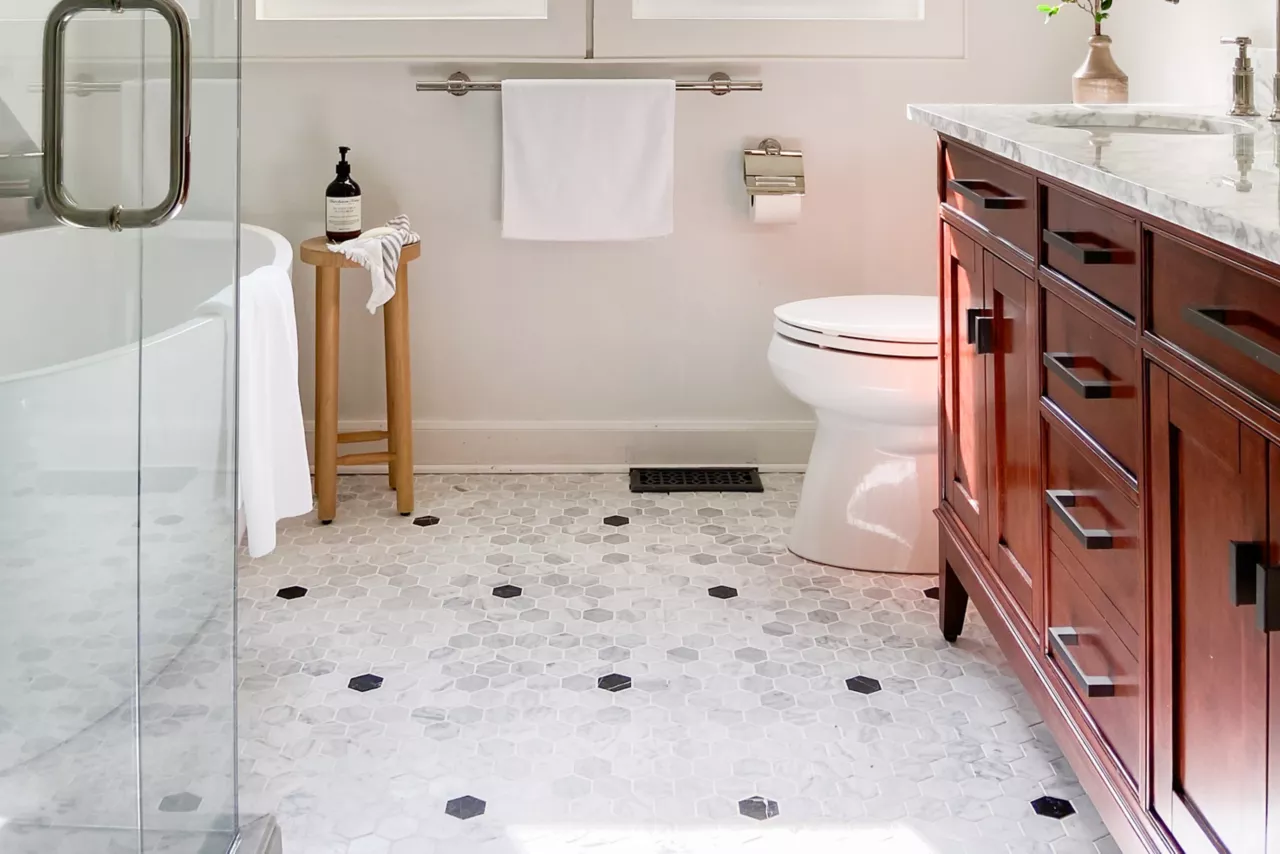
There may be no room in your house in which flooring requires more thought than the bathroom. With its temperature and humidity swings, potential for pooling water, and usually smaller footprints compared to other rooms, bathrooms present multiple factors that you must navigate to find the best flooring choice for your space.
While it might seem daunting at first, the good news is that there are many great bathroom flooring options that span budgets and aesthetic preferences. In this article, we will help you understand what type of flooring is best for your bathroom.
Factors to Consider When Choosing Bathroom Flooring
